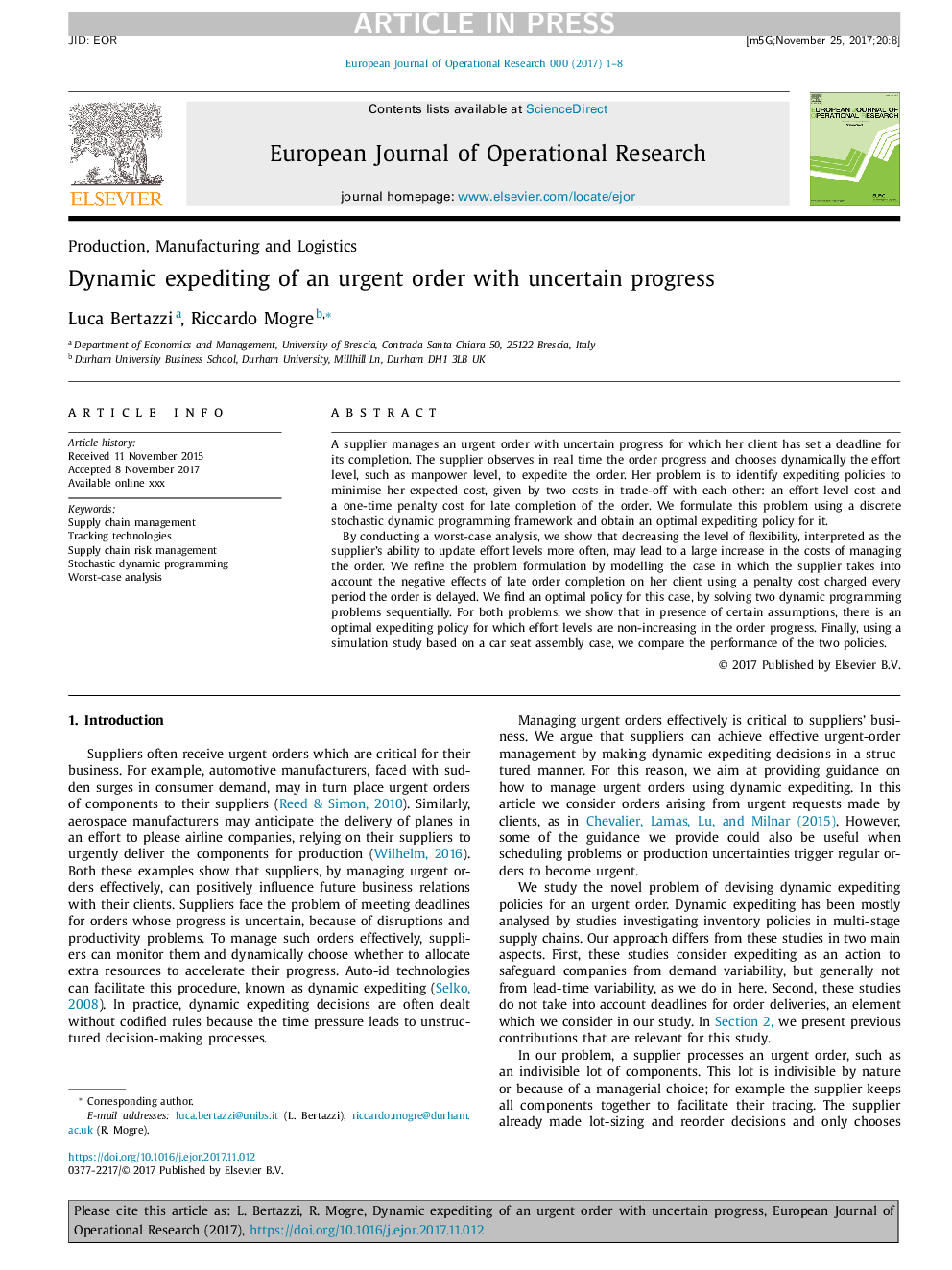| Article ID | Journal | Published Year | Pages | File Type |
|---|---|---|---|---|
| 6895037 | European Journal of Operational Research | 2018 | 8 Pages |
Abstract
A supplier manages an urgent order with uncertain progress for which her client has set a deadline for its completion. The supplier observes in real time the order progress and chooses dynamically the effort level, such as manpower level, to expedite the order. Her problem is to identify expediting policies to minimise her expected cost, given by two costs in trade-off with each other: an effort level cost and a one-time penalty cost for late completion of the order. We formulate this problem using a discrete stochastic dynamic programming framework and obtain an optimal expediting policy for it.By conducting a worst-case analysis, we show that decreasing the level of flexibility, interpreted as the supplier's ability to update effort levels more often, may lead to a large increase in the costs of managing the order. We refine the problem formulation by modelling the case in which the supplier takes into account the negative effects of late order completion on her client using a penalty cost charged every period the order is delayed. We find an optimal policy for this case, by solving two dynamic programming problems sequentially. For both problems, we show that in presence of certain assumptions, there is an optimal expediting policy for which effort levels are non-increasing in the order progress. Finally, using a simulation study based on a car seat assembly case, we compare the performance of the two policies.
Keywords
Related Topics
Physical Sciences and Engineering
Computer Science
Computer Science (General)
Authors
Luca Bertazzi, Riccardo Mogre,
